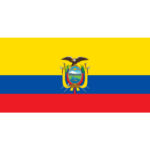

Through Executive Decree No. 754 of May 31, 2023, President Guillermo Lasso reformed the Regulations to the Organic Code of the Environment (hereinafter, “RCODA”).
This reform is preceded by Sentence No. 22-18-IN/21 of September 8, 2021, in which the Constitutional Court: (i) Clarified that the environmental consultation and the prior consultation with indigenous communities are different consultations, and that Art. 184 of the CODA does not apply or replace the right to prior consultation of indigenous communities; (ii) Ordered that Art. 184 of the CODA must be interpreted according to the Constitution of the Republic, the jurisprudence of the Constitutional Court, and the Escazú Agreement;[1] (iii) Declared the unconstitutionality of Arts. 462 and 463 of the RCODA; and (iv) Ordered the President to adapt the RCODA to what was resolved. Subsequently, the aforementioned Court issued Ruling No. 1149-19-JP/21 of November 10, 2021, in which the right to environmental consultation was developed.
The main reforms carried out by Decree No. 754 are the following:
1. The citizen participation process is reformed. This will no longer be governed by the technical standard of the Environmental Authority but by that established in the RCODA, below. Furthermore, the majority opposition of those consulted is regulated, indicating that it is not binding. However, it is established that, if the environmental permit is granted despite majority opposition, it must be duly motivated.
2. All regulations in the RCODA regarding prior consultation with indigenous communities are repealed and Title III of Book III of the RCODA on the citizen participation process for environmental consultation is reformed:
2.1. It is established that the right to environmental consultation will consist of informing the community “about the content of the environmental technical instruments, the possible environmental impacts and risks that could arise from the execution of the projects, works or activities, as well as the relevance of the actions to be taken”, record and compile your criteria, opinions and observations, and thereby consult you about the granting of the corresponding environmental permit.
2.2. It is added that the rules on the citizen participation process for environmental consultation are mandatory and apply in the case of an environmental license, always, and in the case of environmental registration for activities in the hydrocarbon and mining sector.
23. It is established that the citizen participation process for environmental consultation must be carried out prior to the granting of environmental permits. Additionally, the following changes are added to the process:
2.3.1. The Ombudsman’s Office must be notified so that this entity can proceed to provide support to the community and monitor the process. Your participation is mandatory, however, your unjustified absence will not lead to the nullity of the process.
2.3.2. The operator of the project, work or activity must deliver to the competent Environmental Authority the technical environmental instruments that it requires, as well as all the communication materials or supplies for the didactic dissemination of such instruments (e.g. summaries, brochures, slides, etc. ). All deliverables must be translated, when applicable.
2.3.3. To carry out the process, citizen participation mechanisms will be used, including the following: (i) Information mechanisms (e.g. information assemblies, electronic pages, information videos, delivery of information documentation on environmental technical instruments, public information centers, workshops of environmental socialization; (ii) Call mechanisms (e.g. public call, personal invitations); and (iii) Consultation mechanisms (Consultation Assembly).
2.3.4. Special provisions are included to consider when the consultation is carried out in the territories of indigenous peoples: provisions related to their ancestral languages and their forms of organization and decision-making.
2.3.5. The operator of the project, work or activity will be the one who must finance the environmental consultation process, its call and the logistics. He must also provide all the facilities and provide all the resources necessary for its execution.
2.3.6. The process will be divided into two phases: (i) Information Phase and (ii) Consultative Phase. In the first, the delivery of information occurs. In the second, a dialogue takes place between the State and the community in order to present the opinions and observations of the community and consult regarding the issuance of the environmental permit.
3. The validity of all environmental permits that were issued before the reform is ratified. On the other hand, any project, work or activity registered in the SUIA until October 11, 2021 will follow the process prior to the reform. This reform will continue the processes initiated at a later date, even if they have received a technical ruling, as well as the projects, works and activities of the mining sector blocked in the SUIA by Sentence No. 1149-19-JP/21.
For more information contact:
Maria Rosa Fabara | Partner Bustamante Fabara | mrfabara@bustamantefabara.com





